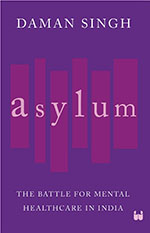Ideas, as we do not adequately appreciate, are profoundly important. They are not merely abstractions, because they lead to actions, to violence or to healing. As a doctor, I was a Resident at a department of psychiatry where ECTs were routine. This treatment is now considered inhuman and is banned in most countries; it continues in India.
The discipline of psychiatry in our country is not engulfed with politics as it should be. By and large, it passes off as something objective and scientific and beyond and above politics. The discipline needs to recognize its own limitations and how imbued with politics its epistemic foundations are. For a beginning, the discipline itself has to recognize the widespread violence it has inflicted on people with mental health issues. This includes, other than ECTs, forced coma, lobotomies of various sorts (which won a Nobel Prize in 1940), and incarceration in asylums, where they were subjected to eugenic sterilizations; and the more routine violence of being shackled, locked up, and fed with drugs that robbed you of any humanity, as is amply testified in the book under review.

